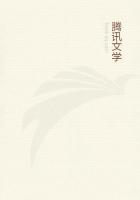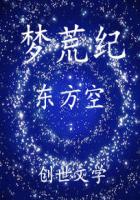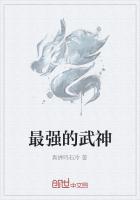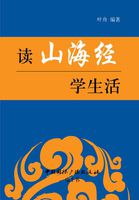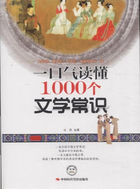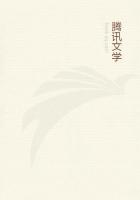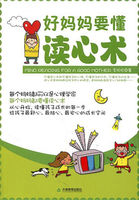But how is it with the application of this category of causality (and all the others; for without them there can be no knowledge of anything existing) to things which are not objects of possible experience, but lie beyond its bounds? For I was able to deduce the objective reality of these concepts only with regard to objects of possible experience.But even this very fact, that I have saved them, only in case I have proved that objects may by means of them be thought, though not determined a priori; this it is that gives them a place in the pure understanding, by which they are referred to objects in general (sensible or not sensible).If anything is still wanting, it is that which is the condition of the application of these categories, and especially that of causality, to objects, namely, intuition; for where this is not given, the application with a view to theoretic knowledge of the object, as a noumenon, is impossible and, therefore, if anyone ventures on it, is (as in the Critique of Pure Reason) absolutely forbidden.Still, the objective reality of the concept (of causality) remains, and it can be used even of noumena, but without our being able in the least to define the concept theoretically so as to produce knowledge.For that this concept, even in reference to an object, contains nothing impossible, was shown by this, that, even while applied to objects of sense, its seat was certainly fixed in the pure understanding; and although, when referred to things in themselves (which cannot be objects of experience), it is not capable of being determined so as to represent a definite object for the purpose of theoretic knowledge; yet for any other purpose (for instance, a practical) it might be capable of being determined so as to have such application.This could not be the case if, as Hume maintained, this concept of causality contained something absolutely impossible to be thought.
In order now to discover this condition of the application of the said concept to noumena, we need only recall why we are not content with its application to objects of experience, but desire also to apply it to things in themselves.It will appear, then, that it is not a theoretic but a practical purpose that makes this a necessity.In speculation, even if we were successful in it, we should not really gain anything in the knowledge of nature, or generally with regard to such objects as are given, but we should make a wide step from the sensibly conditioned (in which we have already enough to do to maintain ourselves, and to follow carefully the chain of causes) to the supersensible, in order to complete our knowledge of principles and to fix its limits; whereas there always remains an infinite chasm unfilled between those limits and what we know; and we should have hearkened to a vain curiosity rather than a solid-desire of knowledge.
But, besides the relation in which the understanding stands to objects (in theoretical knowledge), it has also a relation to the faculty of desire, which is therefore called the will, and the pure will, inasmuch as pure understanding (in this case called reason) is practical through the mere conception of a law.The objective reality of a pure will, or, what is the same thing, of a pure practical reason, is given in the moral law a priori, as it were, by a fact, for so we may name a determination of the will which is inevitable, although it does not rest on empirical principles.Now, in the notion of a will the notion of causality is already contained, and hence the notion of a pure will contains that of a causality accompanied with freedom, that is, one which is not determinable by physical laws, and consequently is not capable of any empirical intuition in proof of its reality, but, nevertheless, completely justifies its objective reality a priori in the pure practical law;not, indeed (as is easily seen) for the purposes of the theoretical, but of the practical use of reason.Now the notion of a being that has free will is the notion of a causa noumenon, and that this notion involves no contradiction, we are already assured by the fact- that inasmuch as the concept of cause has arisen wholly from pure understanding, and has its objective reality assured by the deduction, as it is moreover in its origin independent of any sensible conditions, it is, therefore, not restricted to phenomena (unless we wanted to make a definite theoretic use of it), but can be applied equally to things that are objects of the pure understanding.But, since this application cannot rest on any intuition (for intuition can only be sensible), therefore, causa noumenon, as regards the theoretic use of reason, although a possible and thinkable, is yet an empty notion.Now, I do not desire by means of this to understand theoretically the nature of a being, in so far as it has a pure will; it is enough for me to have thereby designated it as such, and hence to combine the notion of causality with that of freedom (and what is inseparable from it, the moral law, as its determining principle).Now, this right I certainly have by virtue of the pure, not-empirical origin of the notion of cause, since I do not consider myself entitled to make any use of it except in reference to the moral law which determines its reality, that is, only a practical use.
If, with Hume, I had denied to the notion of causality all objective reality in its [theoretic] use, not merely with regard to things in themselves (the supersensible), but also with regard to the objects of the senses, it would have lost all significance, and being a theoretically impossible notion would have been declared to be quite useless; and since what is nothing cannot be made any use of, the practical use of a concept theoretically null would have been absurd.But, as it is, the concept of a causality free from empirical conditions, although empty, i.e., without any appropriate intuition), is yet theoretically possible, and refers to an indeterminate object; but in compensation significance is given to it in the moral law and consequently in a practical sense.I have, indeed, no intuition which should determine its objective theoretic reality, but not the less it has a real application, which is exhibited in concreto in intentions or maxims; that is, it has a practical reality which can be specified, and this is sufficient to justify it even with a view to noumena.
Now, this objective reality of a pure concept of the understanding in the sphere of the supersensible, once brought in, gives an objective reality also to all the other categories, although only so far as they stand in necessary connexion with the determining principle of the will (the moral law); a reality only of practical application, which has not the least effect in enlarging our theoretical knowledge of these objects, or the discernment of their nature by pure reason.So we shall find also in the sequel that these categories refer only to beings as intelligences, and in them only to the relation of reason to the will; consequently, always only to the practical, and beyond this cannot pretend to any knowledge of these beings; and whatever other properties belonging to the theoretical representation of supersensible things may be brought into connexion with these categories, this is not to be reckoned as knowledge, but only as a right (in a practical point of view, however, it is a necessity) to admit and assume such beings, even in the case where we [conceive] supersensible beings (e.g., God) according to analogy, that is, a purely rational relation, of which we make a practical use with reference to what is sensible; and thus the application to the supersensible solely in a practical point of view does not give pure theoretic reason the least encouragement to run riot into the transcendent.

